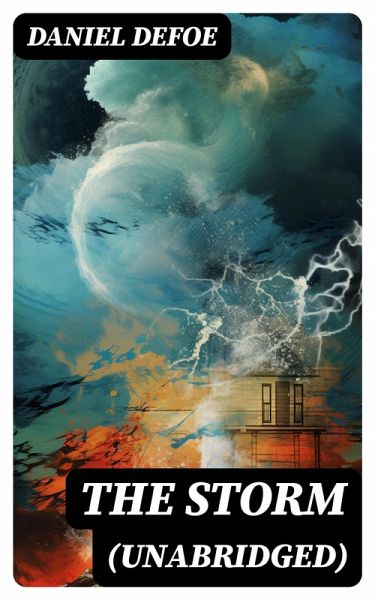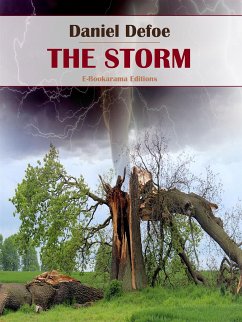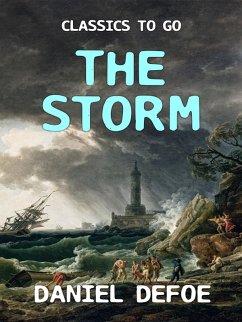
THE STORM (Unabridged) (eBook, ePUB)
The First Substantial Work of Modern Journalism Covering the Great Storm of 1703; Including the Biography of the Author and His Own Experiences
Versandkostenfrei!
Sofort per Download lieferbar
0,49 €
inkl. MwSt.
Weitere Ausgaben:

PAYBACK Punkte
0 °P sammeln!
In "The Storm," Daniel Defoe presents an enthralling account of a great tempest that wreaks havoc on the British coast. Written in a vivid, journalistic style characteristic of Defoe's non-fiction works, this unabridged narrative captures not only the physical ferocity of the storm but also its psychological impact on those who endured it. Defoe meticulously chronicles the chaotic events of the storm, blending personal testimonies with descriptive imagery, thus employing a realist literary approach that foreshadows the 18th-century rise of the novel. This work stands within a broader context o...
In "The Storm," Daniel Defoe presents an enthralling account of a great tempest that wreaks havoc on the British coast. Written in a vivid, journalistic style characteristic of Defoe's non-fiction works, this unabridged narrative captures not only the physical ferocity of the storm but also its psychological impact on those who endured it. Defoe meticulously chronicles the chaotic events of the storm, blending personal testimonies with descriptive imagery, thus employing a realist literary approach that foreshadows the 18th-century rise of the novel. This work stands within a broader context of early modern literature that sought to grapple with nature's sublime terror, a theme deeply resonant in the period's exploration of human vulnerability against the backdrop of an unpredictable natural world. Daniel Defoe, a pioneer in English literature, was not only a novelist but also a pamphleteer and journalist. His diverse experiences, ranging from trade to piracy, underpinned his astute observations of society and nature. This multifaceted background informs "The Storm," wherein Defoe's familiarity with maritime life and his acute awareness of human resilience are remarkably woven into the fabric of his narrative, revealing the interplay between calamity and survival. I highly recommend "The Storm" to readers interested in the intersection of literature and environmental history. It is not merely a recounting of nature's fury but also a profound exploration of human experience in the face of adversity. Defoe's masterful prose will engage those who appreciate detailed descriptions and insightful reflections on the human condition.
Dieser Download kann aus rechtlichen Gründen nur mit Rechnungsadresse in A, B, BG, CY, CZ, D, DK, EW, E, FIN, F, GR, H, IRL, I, LT, L, LR, M, NL, PL, P, R, S, SLO, SK ausgeliefert werden.














